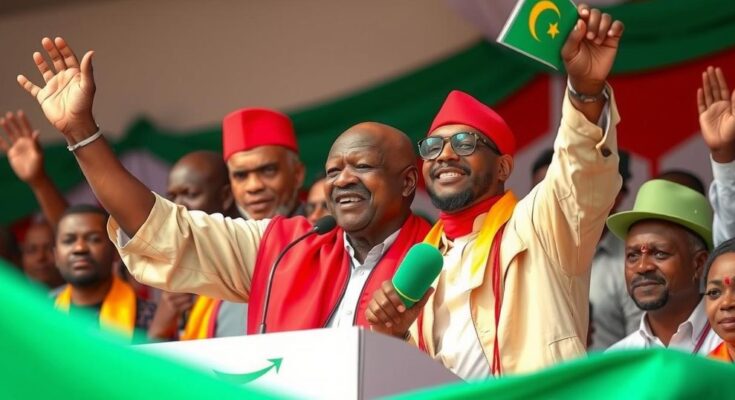Chad’s ruling Patriotic Salvation Movement won a decisive majority in the parliamentary elections held last month, securing 124 out of 188 seats amidst a boycott by major opposition parties. The election, the first in over a decade, saw a voter turnout of 51.5% and was part of the country’s transition to democracy after the military takeover led by Mahamat Idriss Deby in 2021. Opposition groups criticized the election as lacking credibility.
In the parliamentary elections held in Chad last month, the ruling Patriotic Salvation Movement party secured a significant victory, capturing 124 out of 188 available seats. This election marked the first parliamentary vote in over ten years and was characterized by a voter turnout of 51.5%. Notably, the main opposition parties, which included more than ten groups, chose to boycott this election, labeling it as a “charade.” Observers had indicated that this election could further solidify President Mahamat Idriss Deby’s grip on power amidst pressing security challenges.
The parliamentary election was part of the transition towards democracy initiated following Mahamat Idriss Deby’s ascension to power as a military ruler in 2021, following the death of his father, President Idriss Deby Itno, who had governed Chad for thirty years. The current ruling party’s dominance in these elections suggests a continuation of concentrated power within the regime. Deby had previously expressed that the election would lead to an era of decentralization, empowering provincial and municipal governments in an effort to better address the needs of the Chadian populace.
The recent parliamentary elections in Chad are pivotal, as they represent the culmination of a transitional phase towards democratic governance following the military takeover led by Mahamat Idriss Deby in 2021. This transition process commenced after the passing of Idriss Deby Itno, who ruled Chad for three decades. The elections also come at a time of significant security concerns, including threats from Boko Haram and shifts in military alliances, notably a distancing from France. The boycott of the elections by prominent opposition parties underscores the tense political landscape in the country and raises questions about the legitimacy of the electoral process.
In conclusion, the recent parliamentary elections in Chad highlight a critical moment in the country’s transition towards democracy, albeit marred by opposition boycotts and concerns regarding the electoral integrity. The ruling Patriotic Salvation Movement’s overwhelming victory emphasizes the prevailing power dynamics, as President Mahamat Idriss Deby continues to navigate both internal political challenges and external security threats. The lack of participation from major opposition factions raises significant questions about the future of democratic processes in Chad.
Original Source: www.seattletimes.com




